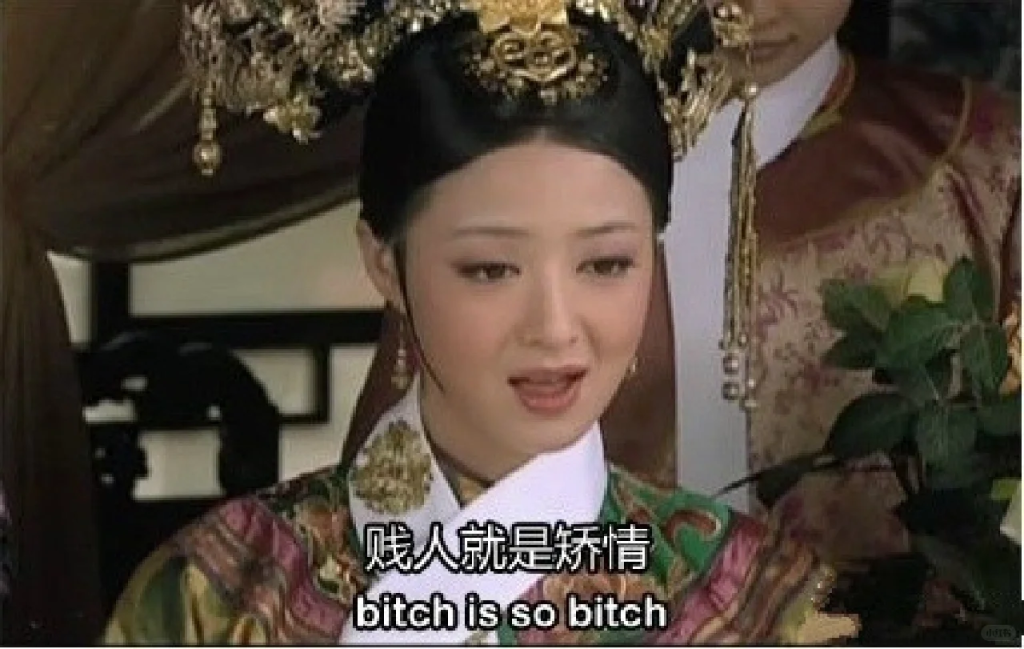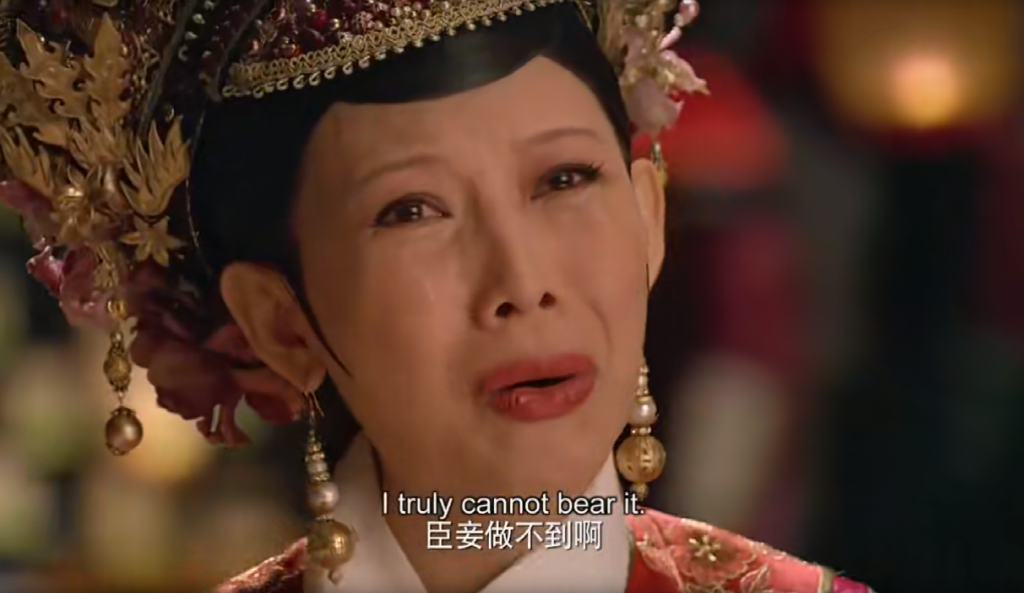Stuart Hall’s Encoding/Decoding theory provides a fascinating lens to analyze how media content is created and interpreted. While producers encode specific messages into their work, audiences decode and reinterpret them in ways that reflect their own cultural and social realities. A perfect example of this dynamic is the Chinese drama Empresses in the Palace (甄嬛传), whose cultural influence has extended far beyond its original broadcast through the phenomenon of recreation. By focusing on iconic lines like “贱人就是矫情” (Bitches are just pretentious) and “臣妾做不到啊,”(I truly cannot bear it) we can explore how viewers actively decode and reshape the show’s meaning in the digital age.

Encoding: The Original Messages of Empresses in the Palace
The creators of Empresses in the Palace encoded a narrative steeped in themes of power, survival, and morality. Set in the Qing dynasty, the drama portrays palace intrigues, alliances, and betrayals, with each character embodying a different strategy for navigating imperial hierarchies.
For example:
- Zhen Huan’s Journey: The protagonist’s transformation from innocence to power reflects themes of resilience and adaptation in the face of oppression.
- Cultural and Historical Aesthetics: The series encodes Chinese heritage through its elaborate costumes, refined etiquette, and Confucian values, adding authenticity and depth to its storytelling.
- Tension and Conflict: Iconic lines like “贱人就是矫情” were encoded to portray intense emotional confrontations, reinforcing the power dynamics of palace life.

Decoding: The Audience Takes Over
While the show’s creators encoded these messages, audiences engage with the material in their own creative ways, decoding and reshaping its meaning. On social media and content platforms, Empresses in the Palace has become a rich source for humor, satire, and modern social commentary. Here’s how:
1. “贱人就是矫情” as a Meme
The iconic line “贱人就是矫情” (roughly translated as “Bitches are just pretentious”) originally serves to highlight Consort Hua’s arrogance and disdain for Zhen Huan. In secondary creations, however, this line has taken on a humorous life of its own:
- Social media users frequently pair the line with exaggerated images or modern scenarios, using it to mock overly dramatic or insincere behavior in everyday life.
- For instance, a post showing someone overreacting to a minor inconvenience might caption it with this line, turning a tense moment into satire.
Decoding Insight: Audiences here employ oppositional decoding, stripping away the line’s original seriousness and repurposing it as a lighthearted critique of social behavior.

2. “臣妾做不到啊” as Relatable Humor
The line “臣妾做不到啊” (“I truly cannot bear it”) was originally encoded to show the Empress’s helplessness and emotional struggle in a palace power game. However, online creators have reinterpreted this line for comedic effect:
- In parody videos, creators use it to dramatize the frustration of modern situations, like declining a boss’s unreasonable request or reacting to an impossible challenge.
- Paired with exaggerated acting and modern-day contexts, the line becomes a universal expression of defeat, evoking laughter and relatability.
Decoding Insight: This reinterpretation represents a negotiated decoding, where the audience retains the emotional essence of the line but reshapes it to fit modern, humorous scenarios.

These examples illustrate how encoding and decoding work in tandem. While the creators of Empresses in the Palace encoded specific messages about morality, power, and survival in an imperial court, the audience has reinterpreted these messages to reflect their own realities. Through recreation, viewers actively decode and reshape the show into memes, parodies, and relatable humor, giving its themes and iconic lines fresh relevance in today’s social and digital landscape.
This phenomenon highlights the dynamic relationship between media producers and consumers. Empresses in the Palace demonstrates that the meaning of a media text is never fixed; it evolves through audience interaction and cultural reinterpretation. The show’s continued resonance, particularly through its internet reimaginings, proves the power of Hall’s Encoding/Decoding theory in explaining how media lives on, not just as it was created but as it is constantly recreated by its audience.

